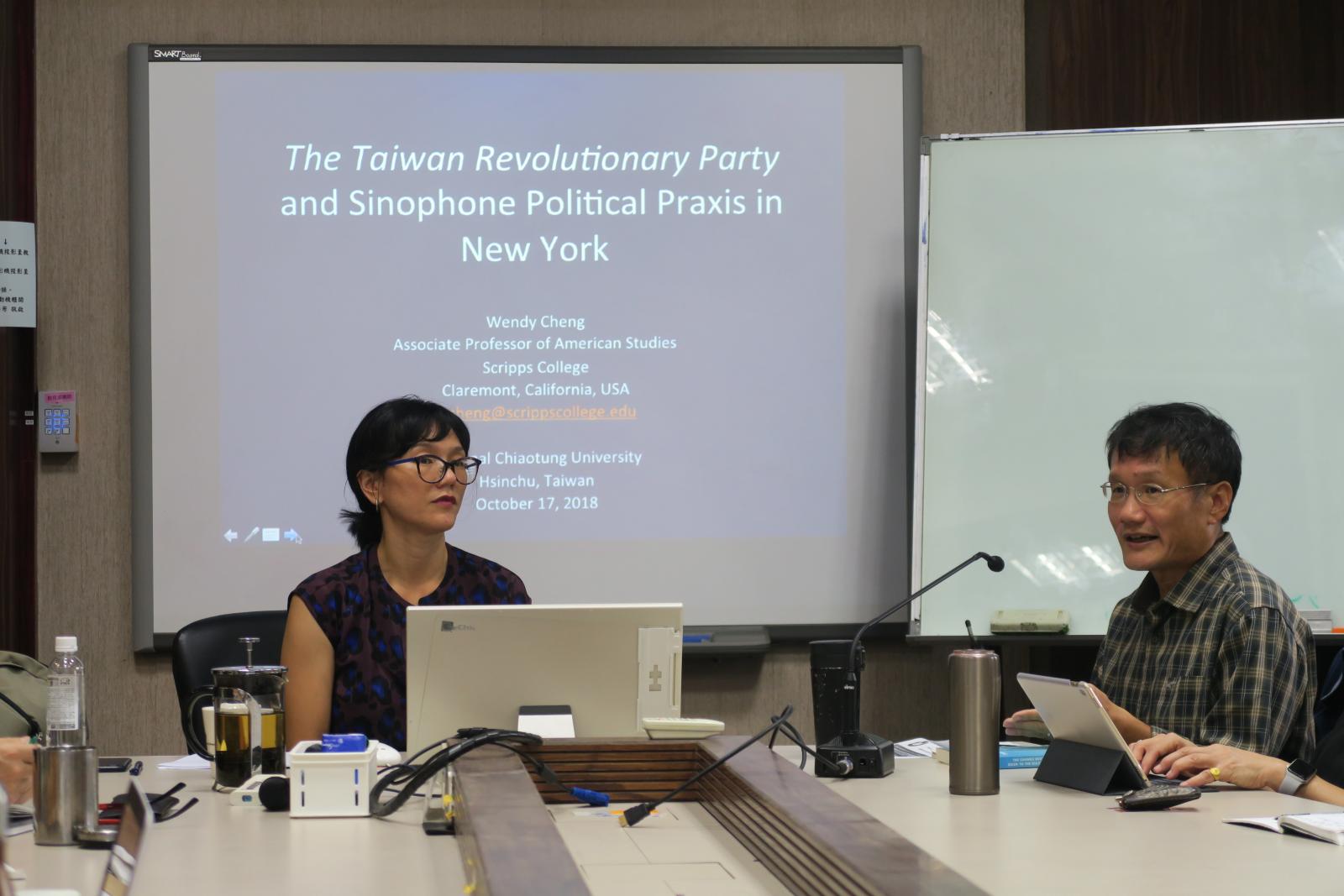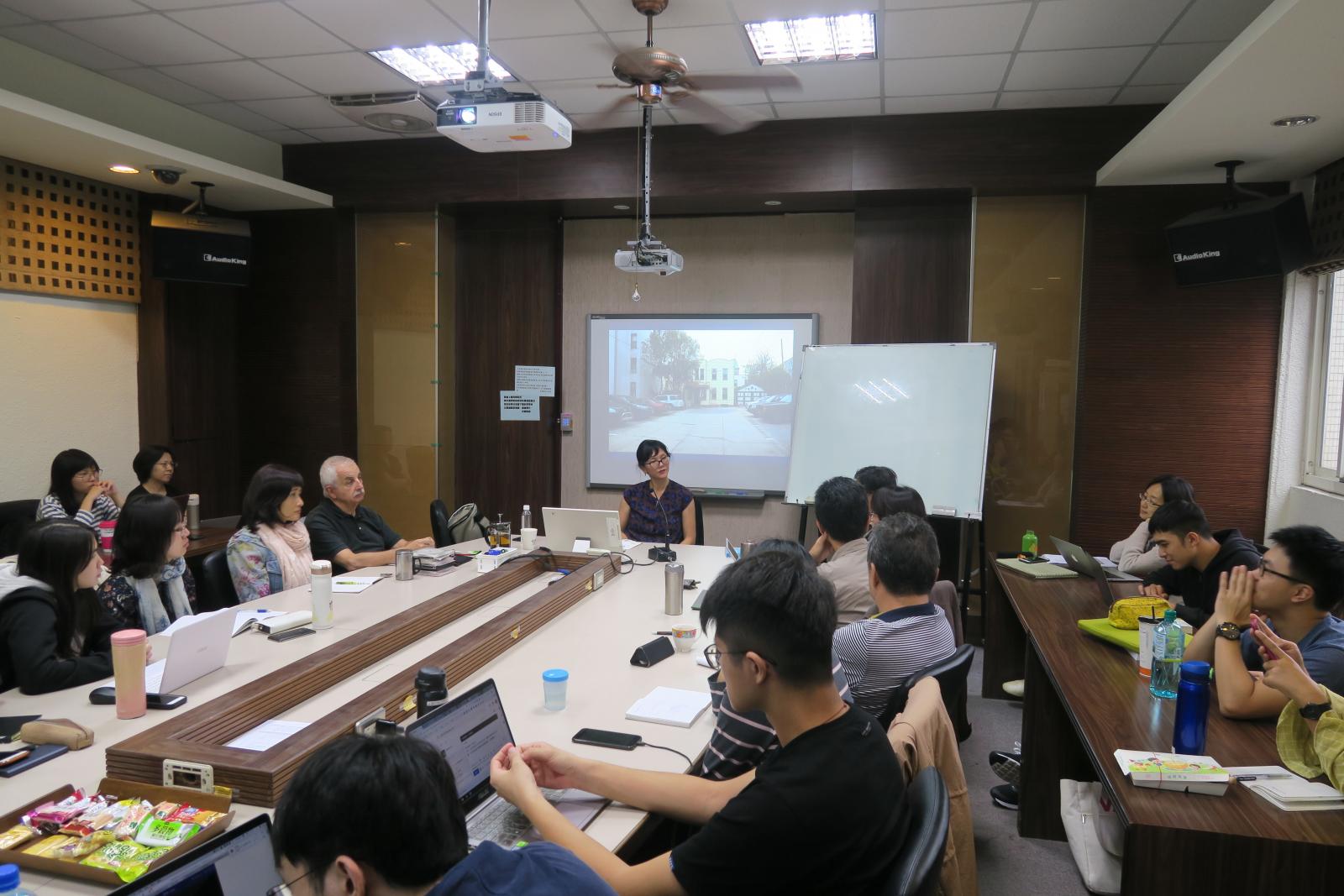

Activism in Diaspora: Notes on Wendy Cheng’s Lecture at National Chiao Tung University
2018-12-17
Activism in Diaspora: Notes on Wendy Cheng’s Lecture at National Chiao Tung University
Jui-an Rae Chou
The Taiwan Revolutionary Party and Sinophone Political Praxis in New York (10/17/2018)
Professor Wendy Cheng’s lecture at National Chiao Tung University on October 17, 2018 focused on the uncharted history of diasporic Taiwanese activism in the U.S. Through case studies of overseas activists in New York during the 1970s and 1980s, Professor Cheng examined an important aspect of Taiwanese American history that has heretofore been overlooked.
Professor Cheng began her lecture by asking a rhetorical question: “Where is Taiwan?” Her question is a variation on the American Studies scholar Amy Kaplan’s question, “Where is Guantanamo?” Like Guantanamo, Taiwan has been haunted by the ghost of the empire. Quoting Shu-mei Shi’s notion that Taiwan is a product of “layered and serial colonialism,” Professor Cheng reminded her audience that Taiwan’s history and possible futures cannot be fully understood without critical attention to multiple colonial histories and to Cold War legacies.
One of these deeply entangled histories is U.S.-Taiwan relations. Professor Cheng explained that the U.S. played crucial roles in Taiwanese political history, both in terms of U.S. intervention in Taiwanese politics and in terms of the U.S. serving as a hub for overseas Taiwanese activism. New York, for example, was a favorite destination for Taiwanese immigrants seeking job opportunities and escaping political instability and oppression in Taiwan. It was also the site where important Taiwanese political events took place overseas, including the attempted assassination of Chiang Ching-kuo and one of the largest Diaoyutai protests.
By following two Taiwanese activists in New York in the 1970s and 1980s, Professor Cheng revealed a parallel history of Taiwanese activism that has not been adequately examined until now. Cary Hung (洪折勝) and Patrick Huang (黃再添) both went to the U.S. as graduate students in the sciences, and both joined WUFI (World United Formosans for Independence, 臺灣獨立建國聯盟) as full-time activists in the 1970s. Later, they both left the organization and established the more progressive TRP (Taiwan Revolutionary Party).
Professor Cheng explained that in contrast to WUFI, TRP was more idealistic in its belief in popular democracy and its engagement with class issues. Both Hung and Huang’s discontent with WUFI was that it replicated the oppressive hierarchy found in Kuomintang, which the organization criticized. Although relatively modest in their accomplishments, TRP represented the small group of Taiwanese diasporic activists who aspired to be more leftist, anti-imperialist, and concerned with working-class issues.
Another important legacy of diasporic activism in New York was the creative strategies and organizational tactics that activists developed. Facing the challenges of mobilizing political agency as immigrants, one of the creative strategies that activists employed was establishing a call service that played news updates from Taiwan. Named “The Voice of Taiwan” (台灣之音), the call service not only connected Taiwanese immigrants in the U.S., but also provided access to banned information for activists located in Taiwan in the 1970s and 1980s.
Another unconventional tactic that Professor Cheng described was how Huang funded TRP. By purchasing apartment buildings in Brooklyn and becoming landlords, Huang and his wife were able to fund TRP through rental income. Their realty office also served as a headquarter and community hub for activists and artists. Professor Cheng explained that although funding a socialist movement through real estate may seem self-contradictory in a Marxist sense, this example demonstrated a creative way to exploit the capitalist regime for a socialist political goal.
By documenting this forgotten page of history in diasporic activism, Professor Cheng believes that stories such as Hung and Huang’s suggest an alternative genealogy of politics, social movement, and identity for a place and people that have been compelled to exist at the fringes of empire, nation, and ethnicity. At the intersection of American Studies and Taiwanese political history, Professor Cheng wishes to complicate the locationality and the identity of Taiwaneseness by highlighting the significance of diasporic activist experience in both Taiwanese and Taiwanese American histories.


近期新聞 Recent News


